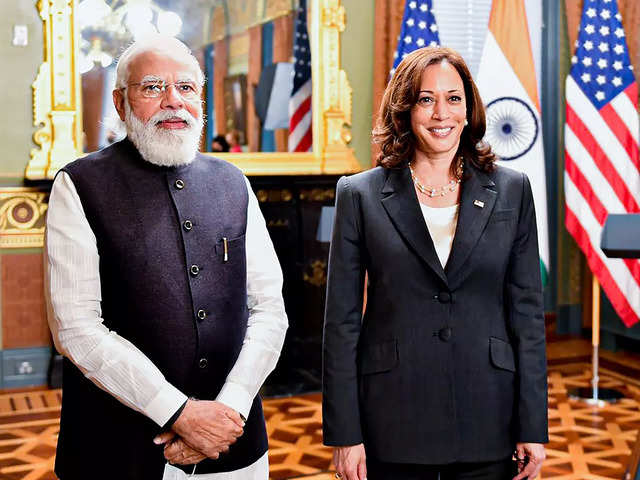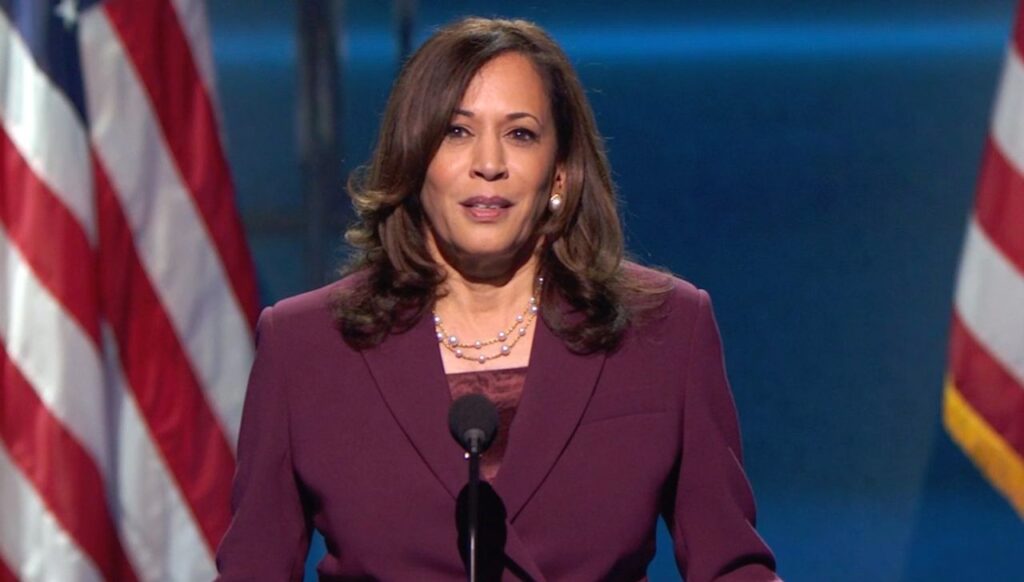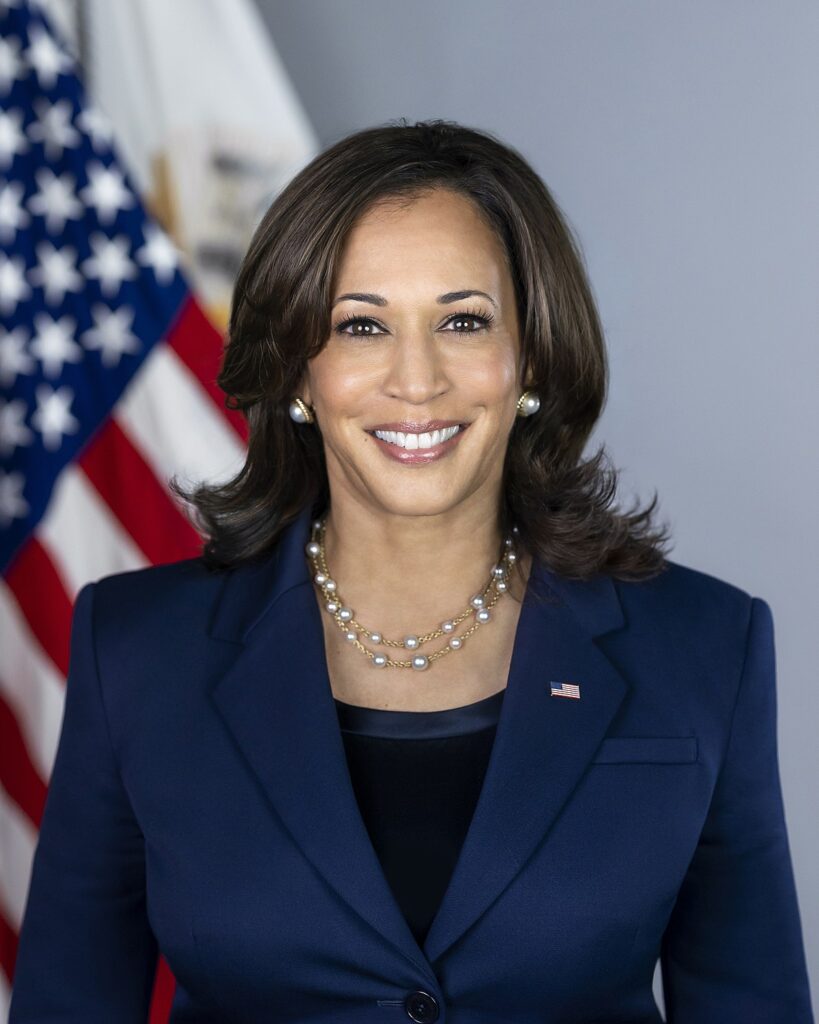આજે વડાપ્રધાન મોદીએ યુએસ કોંગ્રેસને સંબોધન કર્યું હતું. વડાપ્રધાન મોદીએ ભાષણ શરૂ કરતાની સાથે જ સમગ્ર સંસદમાં મોદી-મોદીના નારા લગાવવામાં આવ્યા હતા. સંસદમાં તાળીઓનો ગડગડાટ શરૂ થયો જ્યારે વડા પ્રધાને તેમના ભાષણમાં અમેરિકાના ઉપરાષ્ટ્રપતિ કમલા હેરિસનો પણ ઉલ્લેખ કર્યો. પીએમએ યુક્રેન અને રશિયાને પણ શાંતિનો સંદેશ આપ્યો હતો
આજે વડાપ્રધાન મોદીએ યુએસ કોંગ્રેસને બીજી વખત સંબોધન કરીને ઈતિહાસ રચ્યો છે. વડાપ્રધાન મોદીએ ભાષણ શરૂ કરતાની સાથે જ સમગ્ર સંસદમાં મોદી-મોદીના નારા લાગ્યા હતા.

જ્યારે વડાપ્રધાન મોદીએ તેમના ભાષણમાં અમેરિકાના ઉપરાષ્ટ્રપતિ કમલા હેરિસનો ઉલ્લેખ કર્યો ત્યારે સંસદમાં તાળીઓનો ગડગડાટ થયો હતો.
યુએસ કોંગ્રેસની સંયુક્ત બેઠકમાં પોતાના સંબોધનમાં વડા પ્રધાન મોદીએ કહ્યું કે અમેરિકામાં દરેકને સમાનતા મળે છે, પછી ભલે તે ક્યાંથી આવે. પીએમએ કહ્યું, અહીં કેટલાક લોકો એવા છે જેમના મૂળ ભારતમાં છે. મારી પાછળ એક બેઠો છે જેણે ઈતિહાસ રચ્યો હતો. મને કહેવામાં આવ્યું છે કે સમોસા કોકસ હવે ગૃહનો સ્વાદ બની ગયો છે. હું આશા રાખું છું કે તે વધે અને અહીં ભારતીય ભોજનની સંપૂર્ણ વિવિધતા લાવે.
જ્યારે વડા પ્રધાન મોદીએ કમલા હેરિસની અમેરિકાના ઉપરાષ્ટ્રપતિ તરીકે ચૂંટાઈ આવી ત્યારે તેમની ઐતિહાસિક સિદ્ધિનો ઉલ્લેખ કરતાં ગૃહમાં તાળીઓ પડી હતી.
કમલા હેરિસની માતા શ્યામલા ગોપાલન હેરિસનો જન્મ ચેન્નાઈમાં થયો હતો. તેમની માતા 1960માં અમેરિકા ગયા અને જમૈકામાં જન્મેલા ડોનાલ્ડ જે. હેરિસ સાથે લગ્ન કર્યા. પછી તેનો આખો પરિવાર અમેરિકા આવીને સ્થાયી થયો.

સામોસ કોકસનો અર્થ શું છે?
યુએસ કોંગ્રેસમાં ચૂંટાયેલા ભારતીય મૂળના ધારાસભ્યોને “સમોસા કોકસ” કહેવામાં આવે છે. વાસ્તવમાં, 2016ની યુએસ પ્રમુખપદની ચૂંટણીમાં આ શબ્દ
કોણ છે કમલા હેરિસ?
તેની સમગ્ર સફળ કારકિર્દી દરમિયાન, કમલા હેરિસે અસંખ્ય અવરોધો તોડી નાખ્યા છે અને પોતાની જાતને અમેરિકન રાજકારણમાં એક મજબૂત અને નોંધપાત્ર શક્તિ તરીકે સ્થાપિત કરી છે. હેરિસે યુનાઇટેડ સ્ટેટ્સની પ્રથમ મહિલા, આફ્રિકન અમેરિકન અને એશિયન અમેરિકન વાઇસ પ્રેસિડેન્ટ બનીને અવરોધોને તોડીને ભાવિ પેઢીઓ માટે માર્ગ મોકળો કર્યો છે. કમલા હેરિસ નિઃશંકપણે અમેરિકન નેતૃત્વના ભાવિને પ્રભાવિત કરનાર એક ટ્રેલબ્લેઝર છે જે તેના નિરંતર સંકલ્પ, નોંધપાત્ર પ્રમાણપત્રો અને સમાજ પ્રત્યેના સમર્પણને કારણે આભારી છે.
નાના બાળકો અને શિક્ષણ
20 ઓક્ટોબર, 1964ના રોજ, કમલા દેવી હેરિસનો જન્મ કેલિફોર્નિયાના ઓકલેન્ડમાં ઇમિગ્રન્ટ માતા-પિતા માટે થયો હતો. તેના પિતા ડોનાલ્ડ હેરિસ જમૈકાના જાણીતા અર્થશાસ્ત્રી છે અને તેની માતા શ્યામલા ગોપાલન ભારતીય કેન્સર સંશોધક છે. હેરિસે તેના ભારતીય અને જમૈકન મૂળ બંનેનું સન્માન કરતા ઘરમાં ઉછર્યાના પરિણામે વિવિધતા અને આંતર-સાંસ્કૃતિક સમજણ માટે ઊંડી જાગૃતિ મેળવી.
હેરિસે વોશિંગ્ટન ડી.સી.ની ઐતિહાસિક બ્લેક યુનિવર્સિટી, હોવર્ડ યુનિવર્સિટીમાં રાજકીય વિજ્ઞાન અને અર્થશાસ્ત્રનો અભ્યાસ કર્યો હતો.
ઑક્ટોબર 20, 1964ના રોજ, કમલા દેવી હેરિસનો જન્મ કેલિફોર્નિયાના ઓકલેન્ડમાં ઇમિગ્રન્ટ માતાપિતાને થયો હતો. તેના પિતા ડોનાલ્ડ હેરિસ જમૈકાના જાણીતા અર્થશાસ્ત્રી છે અને તેની માતા શ્યામલા ગોપાલન એક ભારતીય કેન્સર સંશોધક છે. હેરિસે વિવિધતા અને આંતર-સાંસ્કૃતિક સમજણ માટે ગહન જાગરૂકતા પ્રાપ્ત કરી
હેરિસે વોશિંગ્ટન ડી.સી. શયંગ ચિલ્ડ્રન અને એજ્યુકેશનની ઐતિહાસિક બ્લેક યુનિવર્સિટી, હોવર્ડ યુનિવર્સિટીમાં રાજકીય વિજ્ઞાન અને અર્થશાસ્ત્રનો અભ્યાસ કર્યો
ઑક્ટોબર 20, 1964ના રોજ, કમલા દેવી હેરિસનો જન્મ કેલિફોર્નિયાના ઓકલેન્ડમાં ઇમિગ્રન્ટ માતાપિતાને થયો હતો. તેના પિતા ડોનાલ્ડ હેરિસ જમૈકાના જાણીતા અર્થશાસ્ત્રી છે અને તેની માતા શ્યામલા ગોપાલન એક ભારતીય કેન્સર સંશોધક છે. હેરિસે વિવિધતા અને આંતર-સાંસ્કૃતિક સમજણ માટે ગહન જાગરૂકતા પ્રાપ્ત કરી
હેરિસે 2010માં ફરી એકવાર ઈતિહાસ રચ્યો હતો જ્યારે તે કેલિફોર્નિયાના ઈતિહાસમાં પ્રથમ આફ્રિકન અમેરિકન મહિલા અને પ્રથમ મહિલા એટર્ની જનરલ તરીકે ચૂંટાઈ હતી. એટર્ની જનરલ તરીકે, તેણીએ આંતરરાષ્ટ્રીય ગેંગ સામે લડવા, નાણાકીય ગુનાઓને ન્યાય અપાવવા અને ગ્રાહક સુરક્ષાને પ્રોત્સાહન આપવા પર ધ્યાન કેન્દ્રિત કર્યું. તેણીની સિદ્ધિઓમાં ગીરોના દુરુપયોગને સંબોધવા માટે મોટી બેંકો સાથે $25 બિલિયનના સોદાની વાટાઘાટો અને સંવેદનશીલ બાળકોની સુરક્ષા માટે કેલિફોર્નિયા બ્યુરો ઓફ ચિલ્ડ્રન્સ જસ્ટિસની સ્થાપનાનો સમાવેશ થાય છે.

2020 માં, કમલા હેરિસે ફરી એકવાર ઇતિહાસ રચ્યો જ્યારે તેણીને રાષ્ટ્રપતિ જો બિડેનની સાથે યુનાઇટેડ સ્ટેટ્સના ઉપરાષ્ટ્રપતિ તરીકે સેવા આપવા માટે પસંદ કરવામાં આવી. તેણીનું ઉદ્ઘાટન અમેરિકન રાજકારણમાં વિવિધતા અને પ્રતિનિધિત્વ માટેના મુખ્ય વળાંકનું પ્રતિનિધિત્વ કરે છે.
વાઇસ પ્રેસિડેન્ટ તરીકે, હેરિસને મહત્વની ફરજો સોંપવામાં આવી છે, જેમ કે COVID-19 રોગચાળાના મુદ્દાઓને ઉકેલવા માટેના પ્રયત્નોનું નિર્દેશન કરવું, મત આપવાના અધિકારને પ્રોત્સાહન આપવું, અને ઇક્વિટી અને સામાજિક ન્યાય પર વહીવટીતંત્રના કાર્યમાં નેતૃત્વ કરવું. તેણીએ પણ ધ્યાન કેન્દ્રિત કર્યું છે
કમલા હેરિસ અમેરિકન રાજકારણ અને સમાજ પર અમીટ છાપ છોડીને પરિવર્તનશીલ નેતા તરીકે ઉભરી આવ્યા છે. ફરિયાદીથી ઉપરાષ્ટ્રપતિ સુધીની તેણીની અદભુત યાત્રાએ અવરોધો તોડી નાખ્યા છે અને લાખો લોકોને પ્રેરણા આપી છે.
ભારત અને અમેરિકા વચ્ચેના સબંધો કેવા રહ્યા છે?
ભારત-અમેરિકન સંબંધો એ એક આવશ્યક અને બહુપક્ષીય જોડાણ છે જે ઘણા દાયકાઓથી વિકસિત થયું છે, જેમાં રાજદ્વારી, આર્થિક અને સાંસ્કૃતિક સંબંધોનો સમાવેશ થાય છે. ભારત અને યુનાઇટેડ સ્ટેટ્સ વચ્ચેની વ્યૂહાત્મક ભાગીદારીએ પ્રાદેશિક સ્થિરતા, વૈશ્વિક સહકાર અને સહિયારા મૂલ્યોમાં યોગદાન આપતાં મહત્ત્વપૂર્ણ મહત્ત્વ પ્રાપ્ત કર્યું છે. આ લેખ ભારત-અમેરિકન સંબંધોના મુખ્ય પાસાઓનું અન્વેષણ કરશે, તેના મહત્વ અને ભાવિ સહયોગ માટેની સંભવિતતાને પ્રકાશિત કરશે.
રાજદ્વારી રીતે, ભારત અને યુનાઇટેડ સ્ટેટ્સે નિયમિત ઉચ્ચ સ્તરીય મુલાકાતો, સંવાદો અને વૈશ્વિક મુદ્દાઓ પર સહકાર દ્વારા મજબૂત બંધન બનાવ્યું છે. 2008માં સિવિલ ન્યુક્લિયર એગ્રીમેન્ટ પર હસ્તાક્ષર એ એક સીમાચિહ્નરૂપ હતું, જે બંને રાષ્ટ્રો વચ્ચે વધતા વિશ્વાસ અને સહયોગનું પ્રતીક છે. વધુમાં, યુનાઈટેડ સ્ટેટ્સ, ભારત, જાપાન અને ઑસ્ટ્રેલિયાનું બનેલું ક્વાડ એલાયન્સ પ્રાદેશિક સુરક્ષા પડકારોને સંબોધવા અને મુક્ત અને ખુલ્લા ઈન્ડો-પેસિફિકને પ્રોત્સાહન આપવા માટે એક નિર્ણાયક મંચ તરીકે ઉભરી આવ્યું છે
.
આર્થિક રીતે, ભારત-અમેરિકન સંબંધોમાં નોંધપાત્ર વૃદ્ધિ જોવા મળી છે. યુનાઇટેડ સ્ટેટ્સ એ ભારતનું સૌથી મોટું વેપારી ભાગીદાર છે, અને વર્ષોથી દ્વિપક્ષીય વેપાર નોંધપાત્ર રીતે વિસ્તર્યો છે. બંને દેશોએ નવીનતા અને ઉદ્યોગસાહસિકતાને પ્રોત્સાહન આપતા રોકાણ અને ટેકનોલોજી ટ્રાન્સફર માટેની તકોનો સ્વીકાર કર્યો છે. માહિતી ટેકનોલોજી, સંરક્ષણ, ઉર્જા અને આરોગ્યસંભાળ જેવા ક્ષેત્રોમાં સહકાર બંને રાષ્ટ્રોમાં આર્થિક વૃદ્ધિ અને રોજગાર સર્જનને આગળ વધારવામાં મહત્ત્વપૂર્ણ રહ્યો છે.
વધુમાં, લોકો-થી-લોકોના સંપર્કો અને સાંસ્કૃતિક વિનિમયોએ ભારત અને યુનાઇટેડ સ્ટેટ્સ વચ્ચેના સંબંધોને મજબૂત કરવામાં મહત્વપૂર્ણ ભૂમિકા ભજવી છે. યુનાઇટેડ સ્ટેટ્સમાં ભારતીય ડાયસ્પોરા, જેમાં લાખો વ્યક્તિઓનો સમાવેશ થાય છે, તેણે માત્ર બંને દેશોના આર્થિક વિકાસમાં ફાળો આપ્યો નથી પરંતુ બંને સંસ્કૃતિઓ વચ્ચે સેતુ તરીકે પણ સેવા આપી છે. વિચારોનું આદાનપ્રદાન, શૈક્ષણિક સહયોગ અને સાંસ્કૃતિક કાર્યક્રમોએ પરસ્પર સમજણ અને પ્રશંસાને પ્રોત્સાહન આપ્યું છે.
ભારત-અમેરિકન સંબંધો તેના પડકારો વિના નથી. આર્થિક સહયોગને વધુ વધારવા માટે વેપાર અસંતુલન, બૌદ્ધિક સંપદા અધિકારો અને બજારની પહોંચ જેવા મુદ્દાઓ પર ધ્યાન આપવાની જરૂર છે. વધુમાં, ભૌગોલિક રાજકીય ગતિશીલતા અને પ્રાદેશિક જટિલતાઓ અવરોધો રજૂ કરે છે જેને સતત રાજદ્વારી જોડાણ અને વ્યૂહાત્મક સંકલનની જરૂર હોય છે.

આગળ જોઈએ તો, ભારત-અમેરિકન સંબંધો વિવિધ ક્ષેત્રોમાં સહયોગની અપાર સંભાવનાઓ ધરાવે છે. પ્રાદેશિક સ્થિરતા સુનિશ્ચિત કરવા માટે સંરક્ષણ સહયોગ, આતંકવાદ વિરોધી પ્રયાસો અને દરિયાઈ સુરક્ષા પર ધ્યાન આપવું મહત્વપૂર્ણ રહેશે. વિજ્ઞાન, ટેકનોલોજી અને નવીનતામાં સહકાર આરોગ્યસંભાળ, નવીનીકરણીય ઉર્જા અને અવકાશ સંશોધન જેવા ક્ષેત્રોમાં સફળતા તરફ દોરી શકે છે. આબોહવા પરિવર્તન શમન અને ટકાઉ વિકાસ એવા ક્ષેત્રો છે જ્યાં ભારત અને યુનાઇટેડ સ્ટેટ્સ તેમની સંબંધિત શક્તિઓ અને સંસાધનોનો ઉપયોગ કરીને નજીકથી સહયોગ કરી શકે છે.
નિષ્કર્ષમાં, ભારત-અમેરિકન સંબંધો એક ગતિશીલ અને બહુપક્ષીય ભાગીદારીમાં વિકસિત થયા છે, જેમાં રાજદ્વારી, વેપાર, સંસ્કૃતિ અને વ્યૂહાત્મક સહયોગનો સમાવેશ થાય છે. તે પ્રાદેશિક અને વૈશ્વિક બાબતોને આકાર આપવાની ક્ષમતા ધરાવે છે, જેમાં બંને દેશો લોકશાહી, બહુલવાદ અને કાયદાના શાસનના સમાન મૂલ્યો ધરાવે છે. જ્યારે પડકારો અસ્તિત્વમાં છે, ત્યારે વિશ્વાસ અને સહિયારા હિતોનો મજબૂત પાયો સંબંધને વધુ ગાઢ અને વૈવિધ્યીકરણ કરવા માટે એક નક્કર પ્લેટફોર્મ પૂરું પાડે છે. જેમ જેમ વિશ્વ ઝડપી પરિવર્તનોમાંથી પસાર થઈ રહ્યું છે તેમ, ભારત-અમેરિકન જોડાણ શાંતિ, સ્થિરતા અને સમૃદ્ધિને પ્રોત્સાહન આપવા માટે મુખ્ય આધારસ્તંભ તરીકે ચાલુ રહેશે.